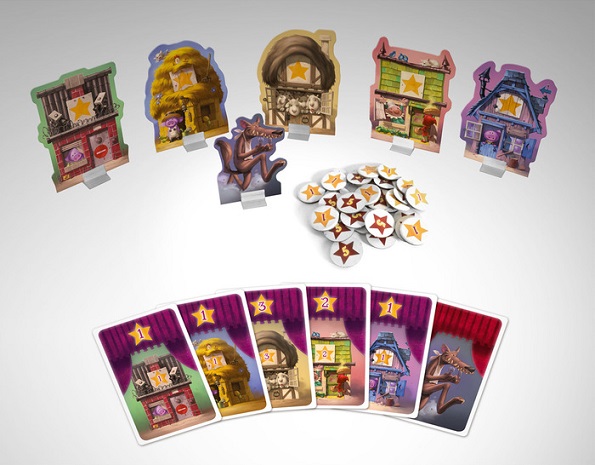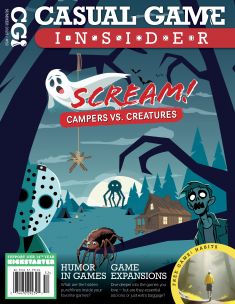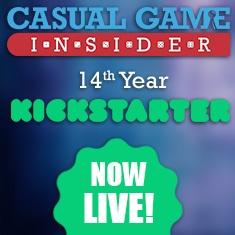Will You Sleep or Set a Trap for the Wolf? A Review of Eat Me If You Can!

Social deduction meets casual and family game in this light, ten minute board game about outthinking your opponents and reading others.
Gameplay
Depending on the number of players, different combinations of characters are used. Each character has a corresponding card and at the start of the game you deal these out randomly to everyone. The player who is wolf takes the wolf figure, while the other players all take the house that matches their character.
On the front of the house is written the number of points it is worth and on the back is a dial which players can move between an image of a nightcap and an image of a trap. Each non-wolf player sets their house dial to one of these two images.
The wolf player then chooses which house he will be attacking this round. Once the wolf has declared his target, all players reveal the back of their houses.
If the wolf attacks you and you have your house set to the trap, the wolf loses victory points equal to the number on the house while you gain that many points. If, however, you had the house set at the image of the nightcap, you lose the points and the wolf gains them.
For any houses that the wolf did not attack, players earn the number of points on their house if they had their house set to the nightcap, and gain nothing (but lose nothing) if it was set to the trap.
After the round has been resolved, the player who lost victory points (the wolf or his victim) takes all the character cards and redistributes them in whichever order she chooses, and the houses and wolf figure are moved around accordingly. The first player to reach ten or more points wins the game.

Review
Eat Me If You Can! plays fast and light. It's social deduction simplified to a point where it’s a good fit for families, but plays quick enough to make it good filler for more adult groups. It’s one of those games that tends to leave you wanting to play ‘one more time’.
When you’re playing, it mostly all comes down to guesswork, which some players might not enjoy. But if you’re playing with a group you know well, it’s really fun to try to figure what each player is likely to do. The game feels pretty weak with three people, but the more players you add the better it gets.
Being able to choose how the characters are distributed also adds another layer to the gameplay. Do you want the house worth only one point? And if you do, is the wolf more likely to assume that the three point house is trapped and instead go after you? Or maybe you want to be the wolf yourself!
The artwork is really nice. There’s a lot of detail on each of the houses, and the component quality on the houses is top notch and their design unique.
There’s just enough layers to the gameplay to keep things quite exciting, and the game is just a great meeting point for causal games, family games, and social deduction. Well worth checking out.
Pros: Great components, at its best with a group you know well
Cons: Not good with three players, a lot of guesswork may not be for everyone
Disclosure: we received a complimentary review copy of this game.









